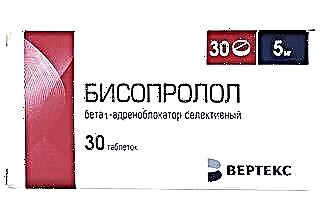Can Panangin be taken during pregnancy and in what cases?
Pregnancy (gestation) is a physiological condition that requires the body of the expectant mother to maximize the stress necessary for the normal development of the fetus. In such conditions, resources are quickly depleted and the balance of minerals is disturbed. In order to restore the level of potassium (K) and magnesium (Mg), many women use the drug "Panangin".
The product does not contain potent substances, so patients perceive it as a “vitamin supplement”. Errors in use, incorrect dosages of the medication without indications often lead to negative consequences for both the mother and the child. Therefore, before you start taking "Panangin", you should carefully read the peculiarities of its use during pregnancy.
The official instructions for the drug do not prohibit taking the medicine during gestation, however, it recommends using it with caution, observing the indications. Self-medication can lead to negative consequences.
The main indication for prescribing a medication is a lack of macronutrients potassium and magnesium in the body. Electrocardiography and blood electrolyte analysis are used to diagnose mineral imbalances.
Additional indications for the use of the product:
- chronic heart failure;
- cardiac arrhythmias (sinus tachycardia, extrasystole);
- therapy with cardiotonics (cardiac glycosides) and / or diuretics (diuretics);
- violations of the electrolyte composition with pathologies of the gastrointestinal tract (vomiting, diarrhea) or against the background of insufficient nutrition;
- renal diseases, including those manifested during pregnancy;
- toxicosis of pregnant women, eclampsia and other gestosis;
- muscle cramps.
1 trimester
There are no actual clinical studies that would confirm the safety of using Panangin in early pregnancy (from weeks 1 to 13). In this case, it is recommended to restore the electrolyte balance with the help of a balanced diet. Medicines are prescribed in critical situations, confirmed laboratory and instrumental.
2 trimester
In the period from the 14th to the 27th week, the possible risk to the fetus and mother is insignificant, and Panangin is allowed to be used more widely.
In the second trimester, some women have calf cramps or edema, which is treated with the drug.
The final period of gestation
In the third trimester (from the 28th week to delivery), the fetus grows rapidly and intensively, which requires a large amount of nutrients and minerals. This period is considered the most favorable for the use of potassium and magnesium preparations in the composition of the product. However, the dosage and timing of administration should be strictly observed in order to avoid side effects.
When is the use of the drug strictly prohibited?
There are pathological conditions in which the use of "Panangin" is strictly prohibited:
- individual hypersensitivity to active substances and auxiliary ingredients;
- hyperkalemia;
- hypermagnesemia;
- Addison's syndrome (insufficiency of the adrenal cortex);
- acute or chronic renal failure;
- atrioventricular block of 1-3 degrees;
- severe myasthenia gravis;
- dehydration of the body (dehydration);
- cardiogenic shock;
- acidosis.
The medicine is not recommended for dialysis patients.
Interaction with other drugs
The likelihood of an overdose increases significantly when using Panangin together with:
- beta-blockers (Bisoprolol, Metoprolol);
- potassium-sparing diuretics ("Veroshpiron", "Aldactone", "Spironoxan");
- direct anticoagulants ("Heparin" and its derivatives);
- ACE inhibitors ("Enalapril", "Lisinopril");
- immunosuppressant "Cyclosporin".
It is very dangerous to take several potassium or magnesium-containing drugs at the same time, including: "Asparkam", "Calcitriol", etc. During a consultation with a doctor, it is necessary to inform about all medications taken.
Overdose
As a result of taking higher doses of the drug, the concentration of K and Mg ions in the blood increases. A state of hyperkalemia-hypermagnesemia occurs, which is manifested by the following symptoms:
- profuse diarrhea (diarrhea), nausea, vomiting;
- severe weakness, slowing heart rate (bradycardia);
- the appearance of arrhythmias (AV block);
- drowsiness;
- diplopia (double vision);
- in severe cases, cardiac and respiratory arrest.
If these symptoms appear, you should stop using the medication and consult a doctor.
Recommendations for use for pregnant women
To use "Panangin" during gestation to be effective and harmless, you must adhere to the recommendations:
- Use the medicine only with a doctor's prescription.
- Check blood macronutrients periodically to prevent overdose.
- Use the Panangin tablet form. Unlike ampoules for parenteral administration, with oral (internal) administration, the drug is absorbed more slowly, therefore, the risk of overdose is reduced. For intravenous infusion, the drug is diluted in 5% glucose solution.
- If the patient has gastrointestinal tract pathologies, it is preferable to use parenteral administration if there are indications for it.
- In case of unpleasant symptoms, you must stop taking and consult your doctor.
- The tablets should be taken after meals with water. The average dose for pregnant women is 1-2 tablets. per day.
- The duration of the course is assigned individually, depending on the specific reason for the lack of minerals.
Alternative sources of potassium and magnesium
It is not always necessary to use pharmaceuticals to correct the mineral balance. You can also increase the level of macronutrients with the help of proper nutrition. A list of foods high in Potassium and Magnesium is presented in the table.
| Sources of Potassium | Sources of Magnesium |
|---|---|
|
|
Conclusions
Application during pregnancy "Panangin" is allowed if indicated and under the supervision of a cardiologist. The doctor takes into account the gestational age, the condition of the patient and the fetus, mineral imbalance (laboratory) and compatibility with other medications taken. Compliance with the doctor's recommendations regarding the form, dose and time of use reduces the risk of overdose and side effects from the drug.



